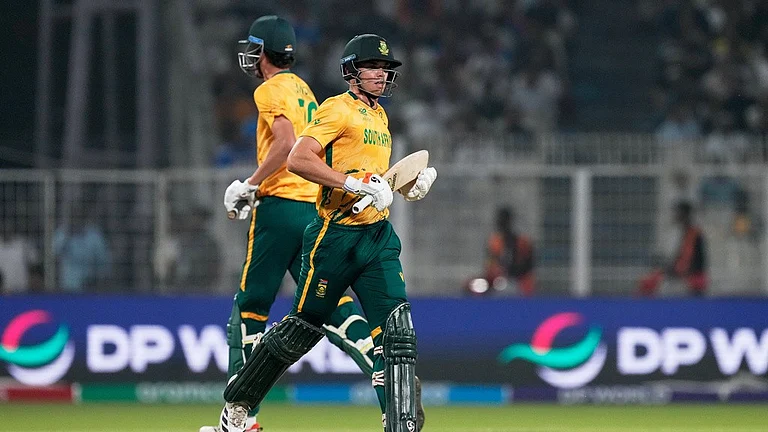After condoms, contraceptives, cigarettes, and whiteners were found in the bags of Class X students in a Karnataka school during a search by the representatives of a school, many petitions were addressed to the Drug Control Department to take action. Following this, the Drugs Control Department (DCD) of Karnataka on Wednesday, issued a circular to all pharmacists prohibiting them from selling condoms, oral contraceptives, and anti-depressant to minors.
Tanushree, a certified Comprehensive Sex Educator (CSE), who has been working in the field of Sexual and Reproductive Health and Rights(SRHR) expressed deep concerns about the DCD's decision in Karnataka. Speaking with Outlook, Tanushree said that while there is a legal ambiguity in the case of two consenting minors indulging in sexual activity, regressive decisions cannot serve the purpose of barring minors or teenagers from indulging in unsafe sexual practices. "Barrier methods (male or female condoms) do not just prevent pregnancies but also prevent the spread of STDs (Sexually Transmitted Diseases) or STIs (Sexually Transmitted Infections). Our best shot is by engaging with minors and encouraging safer sexual practices, and empowering minors to take decisions for their own bodies," Tanushree said.
Calling the ban an ill-thought decision that might lead to the rise of teenage pregnancies, HIV, and STIs, they hope that the decision would be challenged in the courts by the progressive community of educators, parents, and medical practitioners. Referring to India's fast-growing population that has already most likely beaten China, they added that the decision is "scary and dangerous and poses a great threat in terms of population control. Such decisions watershed the attempts of previous governments who have done high-level advocacy for the promotion and usage of condoms, contraceptives and safe sexual practices."
Tanushree, who has been working in the CSE sector for four years now says that in developed countries like the USA, barrier methods or condoms are not popular and acceptable which is responsible for the high STD and STI rates.
The National Family Health Survey-5 reports that Karnataka has a 5.4 per cent teenage pregnancy rate, while the overall teenage pregnancy rate in India is seven per cent. Teenage pregnancies are also higher in rural India at eight per cent than in urban at four per cent.
Apurva Vivek, a Jharkhand-based lawyer runs her own organization Hashiya, which works on safe abortions in Jharkhand. Vivek took a strong stance on the ban when Outlook reached her. "Why do you hate women so much?" she asked.
"I don't think any thought has gone into this ban. By now it's well established that limiting access to contraceptives does not prevent people from having sex, it only prevents safe sex. It's predictably a bag of worms that none of us is going to know what to do with. Teenage pregnancies, maternal deaths, unsafe abortions, school dropouts, STIs, and other complications will all rise exponentially. Why do we keep punishing women's bodies to soothe our morality? If we are so disturbed by young people having sex, why don't we make comprehensive sex education available in schools? I also wonder what directions pharmacies are going to receive in case the minor requesting contraceptives is a married girl," she added pointing to the problem of child marriages in India. "Will they be asking for a marriage certificate along with the proof of age?" Vivek asked.






















